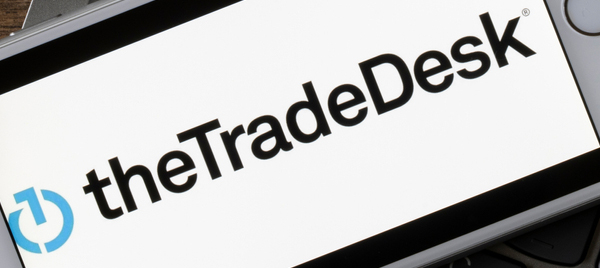 |
||||||||||
|
||||||||||
| PMPs Solve a Lot of Problems for Some Marketers, but Not All |
 |
| When programmatic first hit the scene some 20 years ago, it was seen as the solution for every marketer who wanted to reach their exact audience at scale, wherever they were in the digital universe. Countless brand-unsafe placements, data leaks, and unfortunate headlines later, marketers have soured on open-exchange programmatic. Now we also see publishers like Bloomberg media calling it quits on open-exchange programmatic. The solution? Private marketplace (PMP) deals. Advertisers began negotiating programmatic deals directly with publishers. In 2020, “PMP spending overtook open exchange for the first time across all forms of real-time bidding, including display, mobile, CTV and the walled gardens of social platforms, according to Insider Intelligence,” reports Adweek. PMP spending will accelerate in 2023 as marketers seek safer placements, better reporting metrics, and access to publisher first-party data for targeting purposes. Publishers are leaning into this trend, especially as it allows them to better monetize “large chunks of their audiences that are quickly becoming unmonetizable.” It also benefits publishers like Bloomberg Media, who have ample first-party data it can deploy to create additional products that entice advertisers and the freedom to deemphasize revenue generation in the short term in pursuit of longer-term goals. But there’s a catch: scale is an inherent promise of programmatic, and PMPs can’t deliver it. Complicating matters further, advertisers with a lot of customers (and first-party data) will have an easier time scaling their campaigns than those who don’t. |
| Adweek predicts a “bifurcation” between buyers and sellers with ample first-party data and who are, therefore, likely to benefit from PMP deals and those who don’t. If this bifurcation occurs, it will likely lead to distinct categories of investment and development for buyers, sellers, and ad-tech vendors. It’s not difficult to imagine a world where one part of the industry focuses on first-party data solutions, including data clean rooms, while the other focuses on developing alternative forms of targeting and attribution measurement, such as user ID graphs and AI-driven contextual targeting. Those with plenty of first-party data will likely advocate for solutions that allow them to scale campaigns across multiple PMP deals, with clean rooms deployed to assess campaign performance. Those with smaller volumes of first-party data are likely to have a more substantial reliance on open-exchange programmatic and will advocate for greater protections against brand unsuitable and unsafe environments, as well as malware and malvertising. Publishers downsizing their sales teams in response to a recession must rely on open exchanges to monetize their inventory. They may advocate for the open exchanges to better screen for malvertising and malware. However, as solutions and strategies mature over the next few years, all publishers and marketers will likely benefit from emerging publisher first-party data solutions and brand-safety advances in the open RTB market. |
| Galileo: TTD Builds Their Post-cookie Plans |
 |
| At CES in Las Vegas, The Trade Desk unveiled Galileo – a strategic offering connected to Unified ID 2.0. It enables advertisers to target audiences without traditional tools such as third-party cookies. With Galileo, advertisers match their first-party data with comparable data sets across the open web, and it helps match different audience types using different technologies. It does this by direct onboarding integrations with CRM, CDP, and clean room providers. In addition, the platform uses hashed consumer email addresses that publishers then use to create a unique UID2. That UID2 is then cross-referenced with consumer email data advertisers have collected to identify relevant audiences. Since beta testing opened up for UID2 in March 2021, it’s been gaining steam as a standard cookieless alternative throughout the industry with Prebid.org taking on an operating role to make sure it stays open-sourced, to Amazon integrating it with AWS, to major brands, agencies, ad tech companies, and publishers like The Washington Post, Disney and Paramount adopting it. Yet, some publishers remain on the fence about the practical use cases of the product. The buy-side has generally bought into UID2, suggesting that adopting Galileo would be easy. Yet, some believe sending their first-party data to an industry-wide solution will decrease ad spend. |
| Google delayed cookie depreciation, but the industry is well aware that the day is coming soon. While many in the industry are beginning to prepare for it, others are still taking a wait-and-see approach. TTD’s UID2 and Galileo are evidence of that. They are offering the entire advertising ecosystem a solution that will help reach audiences in a privacy-centric way. While UID2 has been more widely adopted throughout the industry, it is one of many ID solutions, such as ID5, RampID, and more that provide post-cookie solutions. In general, Galileo strengthens The Trade Desk’s post-cookie assets. The Trade Desk saw a hole in the market. They noticed that many advertisers did not know how to use their first-party data. Galileo’s centralized tech changes that. Compared to its competitors, such as Google’s PAIR, advertisers can access opted-in user data across publishers on the open web instead of being limited to one specific publisher. In addition to this, the industry has implemented other practices that allow you to collect data without the use of third-party cookies. For example, retail media and data clean rooms help aggregate first-party data and adhere to privacy concerns. Why wait to prepare for third-party deprecation to arrive when you already have a heads-up? Taking that wait-and-see route will leave you behind the curb. |
| President Biden Calls for Restrictions on Data Targeting |
 |
| The call for federal privacy regulations has made it up to the oval office. Specifically, President Joe Biden called for new laws that would affect the collection and use of data for online consumers. "We need serious federal protections for Americans' privacy," says President Biden. "That means clear limits on how companies can collect, use and share highly personal data -- your internet history, communications, location, and health, genetic and biometric data." This call-to-cation included restrictions on targeted advertising and a complete ban on targeted advertising toward children. He doubled down, asserting that companies are generally over-collecting data at this point. In addition to this, Biden offered his support to revise Section 230 of the Communications Decency Act. The law "protects tech companies from lawsuits over material posted by users and wants more transparency about the algorithms tech companies use." This is in light of two cases coming to the Supreme Court that focuses on tech companies' culpability for user-created content. The plaintiffs–family members of terrorist victims–are suing tech companies for videos shared on their platforms. The Biden administration sided against Google in one of the cases. They argued that Section 230 does not protect Google from making targeted recommendations of terrorism-related videos. In other cases, they did side with the tech company, "arguing that the mere failure to take down material posted by terrorists doesn't amount to aiding and abetting terrorism." |
| There are two sides to this discussion. On the one hand, the federal government continues to push for federal privacy regulations. While other continents successfully passed federal laws, such as the EU and Australia, the U.S. government has struggled to do the same. For example, The ADPPA has gone through several iterations in the House and Senate but has never passed through all of the checks and balances. While state legislatures passed privacy laws successfully, federal regulations are still in the air. Will a call to action from the president speed up the process? On the other side of the coin is big tech. The industry is tired of the monopoly of big tech companies, and the federal government feels the same way. The previously mentioned supreme court cases exemplified that alongside other federal laws such as the Competition and Transparency in Digital Advertising Act. Gone are the days when the duopoly reigned without impunity. Yet, big tech companies are taking strides to right their wrongs. For example, Meta announced that they would curb targeting teens. They said, "data about teens' engagement on Meta's apps -- including whether teens followed Instagram or Facebook pages -- won't be used for ad targeting." |
 |
|||||||
|
|||||||
 |
|||||||
|
|||||||
 |
|||||||
|
| @{optoutfooterhtml}@ |






